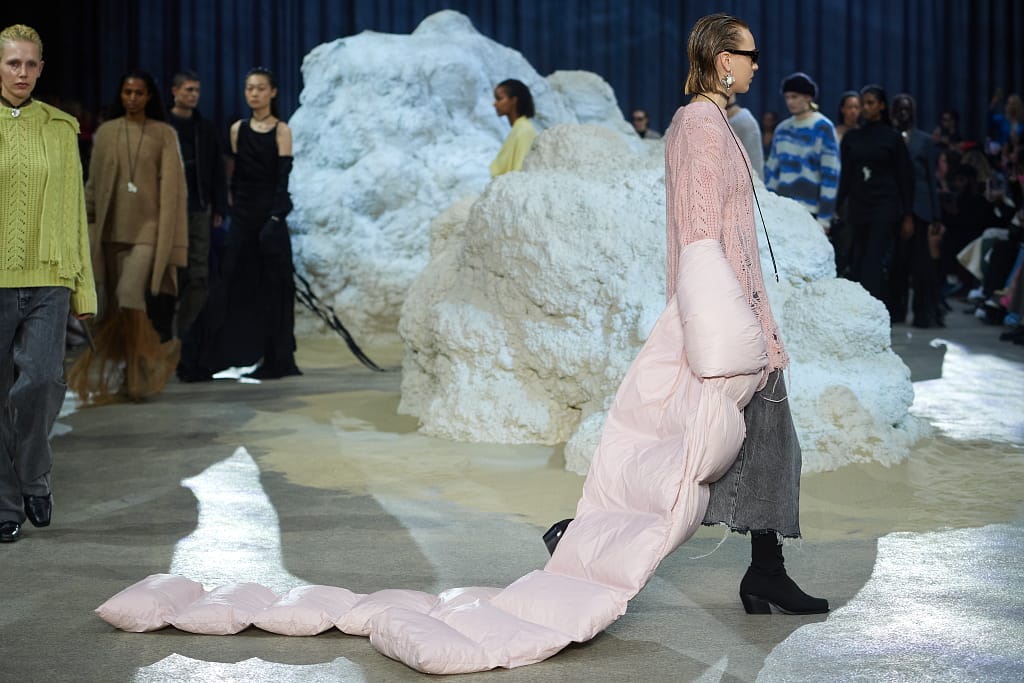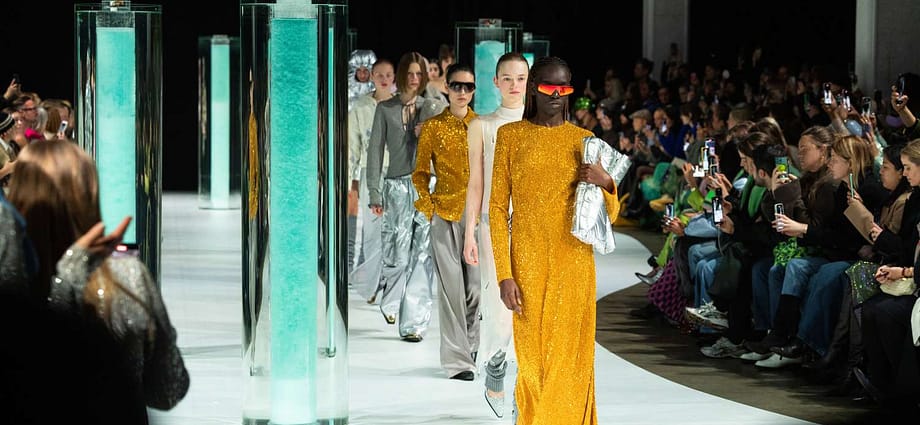In a revolutionary move, Copenhagen Fashion Week is setting a new benchmark in the fashion industry by prioritising sustainability for their Fall 2023 collections. This progressive initiative is paving the way for a more environmentally conscious future. Although sustainability has often taken a back seat in the fashion industry, Copenhagen is now taking definitive steps to introduce a new standard of sustainability for all designers.
Copenhagen Fashion Week has been recognised for showcasing the best fashion exports from Scandinavia, such as Ganni, Marimekko, Stine Goya, and Toteme. The event has also taken on a new role – leading the industry in sustainable practices and reducing its environmental impact. The sustainability action plan, introduced in 2020, is based on 18 minimum requirements that must be met by all brands on its schedule.

A New Era of Sustainability
These requirements cover six key areas: strategic direction, design, smart material choices, working conditions, consumer engagement, and show production.
The implementation of these requirements began in the autumn/winter 2023 season, making it the first time they have been fully enforced after a series of successful pilot tests.
“It’s a very significant milestone for Copenhagen Fashion Week, two years ago, not all brands on the schedule met the requirements. Now we can see this framework does accelerate change in the industry – a lot of progress has been made.” – Cecilie Thorsmark, CEO of the event
The transition period between the announcement of the standards and their implementation allowed brands to make necessary changes. Only one brand failed to meet the requirements and was not included in the official schedule. The standards will be strengthened on an annual basis to keep up with industry practices and regulations.

“Going forward, we’re going to introduce one new standard a year, but we will also work with the existing standards to ensure that they’re strict enough.” – Cecilie Thorsmark
Leading the Way Towards Change a Sustainable Future
Copenhagen Fashion Week’s sustainability action plan has had a profound impact on the participating brands. It has pushed them to re-evaluate their practices and set ambitious goals in areas they may not have previously focused on. The minimum standards have served as a guiding framework for brands like A. Roege Hove, helping them identify areas for improvement.
“A. Roege Hove says Copenhagen Fashion Week’s minimum standards have helped the brand set goals for areas it wasn’t previously focusing on,” – James Cochrane.
This emphasis on sustainability has inspired brands to take a holistic approach to their operations. From strategic planning to material choices and production processes, every aspect of a brand’s presence at Copenhagen Fashion Week is scrutinised through the lens of sustainability.
Circular Economy, Collaboration and Consumer Consciousness
Copenhagen Fashion Week acknowledges that achieving sustainability goals requires collaboration and collective action. To foster a sense of community and encourage knowledge sharing, the event hosts various forums, workshops, and seminars throughout the week. These platforms allow industry professionals, experts, and stakeholders to come together and exchange ideas, innovative solutions, and best practices for sustainable fashion.
Circular economy principles play a central role in Copenhagen Fashion Week’s sustainability action plan. Brands are encouraged to consider the life cycle of their products, from sourcing materials to end-of-life disposal. Designing with longevity in mind, utilising recycled or up-cycled materials, and embracing circular business models are all key strategies for achieving a more sustainable fashion industry.
Consumer engagement is another vital aspect of Copenhagen Fashion Week’s sustainability efforts. Brands are encouraged to educate consumers about their sustainable practices, transparency in the supply chain, and the environmental impact of fashion. By fostering a deeper understanding of these issues, the event aims to empower consumers to make more conscious choices and support brands that align with their values.

Transforming Fashion Shows
Fashion shows are an integral part of Copenhagen Fashion Week, and the event is committed to making them more sustainable. Show production, including set design, lighting, and energy consumption, is carefully considered to minimise environmental impact. Some brands have even taken the lead in experimenting with innovative and Eco-friendly show formats, such as virtual or digital showcases.
Copenhagen Fashion Week’s sustainability action plan has garnered international attention and admiration. Its success has inspired other fashion weeks around the world to follow suit and adopt similar sustainability initiatives. By leading by example, Copenhagen Fashion Week is spearheading a global shift towards a more sustainable and responsible fashion industry.
A Road-map for the Future
Copenhagen Fashion Week’s commitment to sustainability is an ongoing journey. The event will continue to set new standards and push the boundaries of what is possible in terms of sustainable fashion. As the industry evolves and new challenges arise, Copenhagen Fashion Week remains at the forefront, driving change and inspiring others to join the movement towards a more sustainable future.
Copenhagen Fashion Week has transformed from a platform for showcasing fashion trends to a trailblazer in sustainable practices. Its sustainability action plan and minimum requirements have set a new benchmark for the industry, inspiring brands to adopt more sustainable practices and driving positive change.

